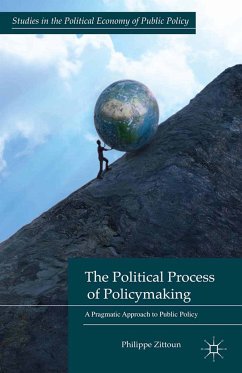
Democratic Governance and Economic Performance (eBook, PDF)
How Accountability Can Go Too Far in Politics, Law, and Business
Versandkostenfrei!
Sofort per Download lieferbar
72,95 €
inkl. MwSt.
Weitere Ausgaben:

PAYBACK Punkte
36 °P sammeln!
Conventional wisdom warns that unaccountable political and business agents can enrich a few at the expense of many. But logically extending this wisdom implies that associated principals - voters, consumers, shareholders - will favor themselves over the greater good when 'rules of the game' instead create too much accountability. Democratic Governance and Economic Performance rigorously develops this hypothesis, and finds statistical evidence and case study illustrations that democratic institutions at various governance levels (e.g., federal, state, corporation) have facilitated opportunistic...
Conventional wisdom warns that unaccountable political and business agents can enrich a few at the expense of many. But logically extending this wisdom implies that associated principals - voters, consumers, shareholders - will favor themselves over the greater good when 'rules of the game' instead create too much accountability. Democratic Governance and Economic Performance rigorously develops this hypothesis, and finds statistical evidence and case study illustrations that democratic institutions at various governance levels (e.g., federal, state, corporation) have facilitated opportunistic gains for electoral, consumer, and shareholder principals. To be sure, this conclusion does not dismiss the potential for democratic governance to productively reduce agency costs. Rather, it suggests that policy makers, lawyers, and managers can improve governance by weighing the agency benefits of increased accountability against the distributional costs of favoring principal stakeholders over more general economic opportunities. Carefully considering the fundamentals that give rise to this tradeoff should interest students and scholars working at the intersection of social science and the law, and can help professionals improve their own performance in policy, legal, and business settings.
Dieser Download kann aus rechtlichen Gründen nur mit Rechnungsadresse in A, B, BG, CY, CZ, D, DK, EW, E, FIN, F, GR, HR, H, IRL, I, LT, L, LR, M, NL, PL, P, R, S, SLO, SK ausgeliefert werden.













